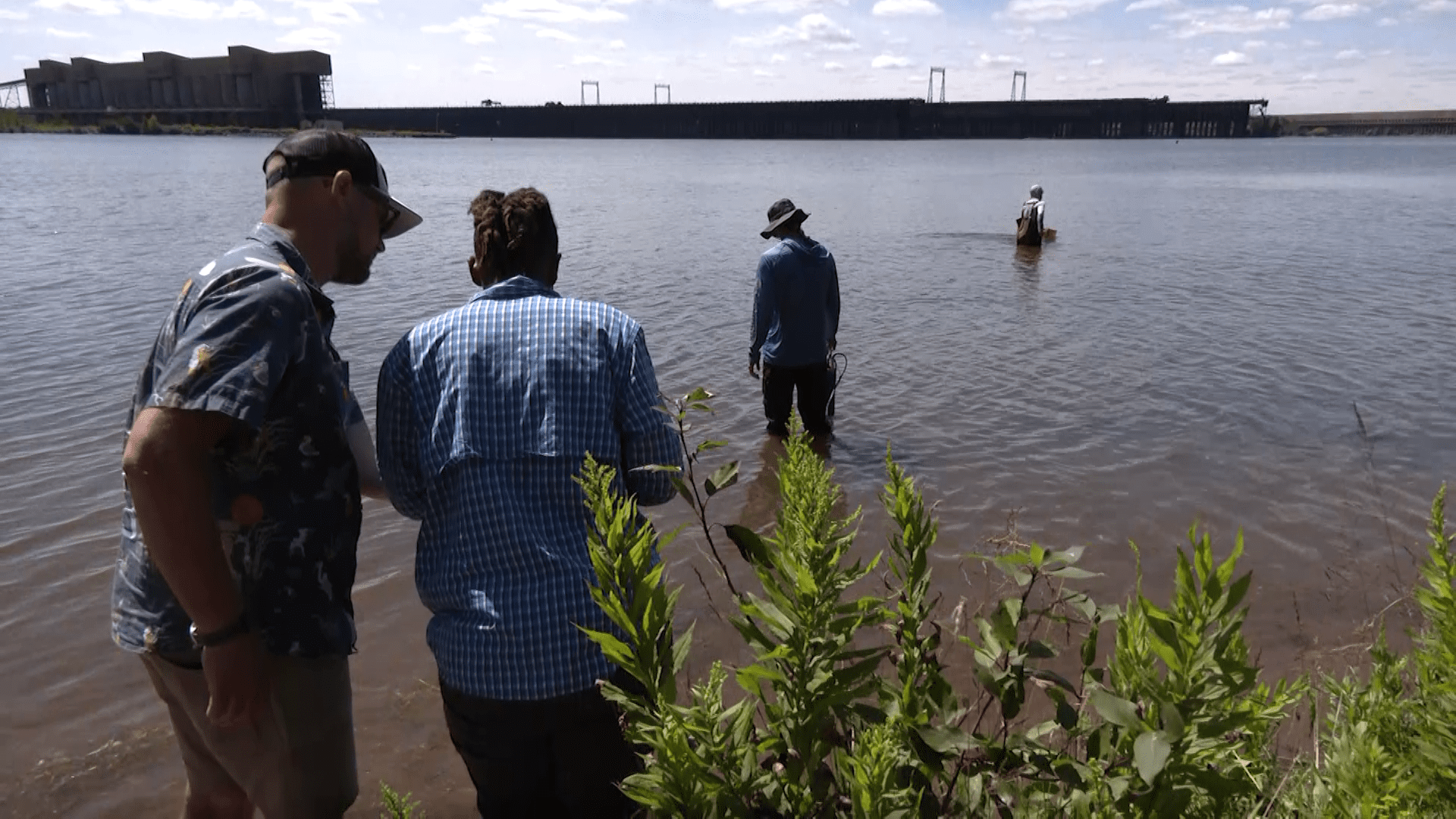Rivers2Lake Education Program gets money to expand opportunities for teachers
The Lake Superior National Estuarine Research Reserve education program was awarded $154,400 from National Oceanic Atmospheric Administration’s (NOAA) Great Lakes Bay Watershed Education Program to expand local, experiential, and watershed-connected teaching and learning through the Rivers2Lake Education Program.
The program kicked off for eight local teachers on Monday, with a five-day immersive learning experience on the St. Louis River.
Crystalgail Welcome, a new teacher at Marshall, told us, “I am new to the area, and so learning about the rivers and lakes, knowing that it’s what surrounds most of this area, was something that was really I felt impactful to me. And then the opportunity to meet other educators and engage those are things that interested me in this program.”
Her water quality monitoring partner, Matthew Peck, teaches at Lowell Elementary.
He said, “I saw this program as a great way to learn more about this resource and be able to incorporate it more in my lessons. And even get my students out to interact with this environment more.”

(WDIO)
“What’s really powerful about the Rivers Lake program is that at our core, we focus on teachers and building their capacity for and confidence for outdoor learning and incorporating local examples into their classrooms. 52 And then of course, that reaches their students during the school year that they’re in the rivers to Lake program and they’re students in the years even beyond, as they like, keep doing what they’ve practiced and honed this year with us,” explained Luciana Ranelli, the Education Coordinator for Lake Superior Reserve.
Over ten years, Lake Superior Reserve staff have engaged over a hundred regional educators in Rivers2Lake, integrating the Lake Superior watershed into classrooms through place-based and outdoor learning. The program provides professional development for teachers through outdoor experiences, yearlong mentoring, and co-teaching. Their students are engaged through outdoor and inquiry-based learning, and the program provides Lake Superior resources, networking and support to classrooms. In 2022, the program served nearly 2,000 PK-12 students.
The new award extends multiple year support for Rivers2Lake alumni teachers in a learning community that sustains Lake Superior education. The grant funds education efforts in partnership with the Superior Rivers Watershed Association based in Ashland, Wisconsin, and Northland College’s Associate Professor of Education, Dr. Kevin Zak.
“This funding will help create this network of alumni teachers who’ve already done Rivers2Lake to continue to stay connected with each other, inspiring each other as brainstorm partners, and to also be inspiration and connection for the new teachers who keep coming each year,” Ranelli added.
With support and expertise from Superior Rivers and Northland College, Rivers2Lake reaches more of Wisconsin’s Lake Superior basin and increases the number of teachers and students served each year. “Our educators are shaping the watershed stewards of our future, and we’re excited to help develop ongoing support for them. One of our favorite ways to engage the community is taking people into streams – now we can empower teachers to do so with their students,” said Alex Faber, Executive Director at Superior Rivers.
The award also provides funding for the production of Great Lakes Indian Fish & Wildlife Commission (GLIFWC) educational publications to be used in classrooms. Rivers2Lake integrates student-centered education materials from a variety of sources, including NOAA and GLIFWC, supporting Ojibwe treaty rights in the Lake Superior region and instruction on history, culture, and tribal sovereignty.
During the Rivers2Lake Summer Institute, teachers are spending five days learning along the St. Louis River and Lake Superior with scientists, natural resources professionals, tribal leaders and elders, and conduct their own water quality research projects.
The NOAA Great Lakes Bay Watershed Education and Training (B-WET) program funds locally relevant, authentic experiential learning for K-12 students and educators in the Great Lakes watersheds. These regional awards are sustained through the Great Lakes Restoration Initiative.
The Lake Superior National Estuarine Research Reserve is one of 30 Reserves in the United States. The program is operated by the University of Wisconsin-Madison Division of Extension with leadership from the National Oceanic and Atmospheric Administration and based on the\ UW-Superior campus. The Reserve is based on Barker’s Island in Superior and encompasses over 16,600 acres along the St. Louis River (chi-gami ziibi in Ojibwe) freshwater estuary.

